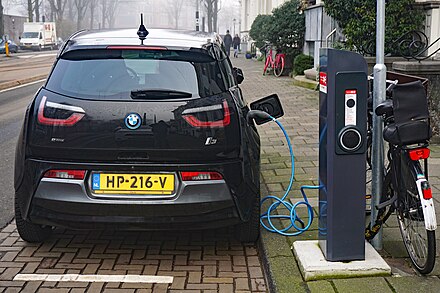RENEWABLE ENERGY: The Phasing Out of Combustion-Powered Vehicles and Future Outlook

Did you know that Ethiopia has become the first country in the world to ban the import of gasoline and diesel vehicles in 2024?
As Nigerians grapple with the rising astronomical price of Premium Motor Spirit (PMS) popularly called petrol, and other crude-oil refined energy substance, as well as hoping the newly Dangote Refinery, the largest in Nigeria and in Africa, will assuage the trend, some countries in the global world are hastening up their plans to reduce the dependence on fossil fuel through the phasing out of fossil fuel vehicles.
Recently, Ethiopia's Prime Minister Abiy Ahmed banned the import of combustion-powered vehicles in a decision that will force vehicle owners and drivers in the East African country to switch to electric vehicles (EVs). Even though the decision of the PM is seen as hasty due to the country's lack of enough EV-power infrastructure, it is however a bold move
A phase-out of fossil fuel vehicles, which are proposed bans or discouragement on the sale of new fossil-fuel powered vehicles or use of existing fossil-fuel powered vehicles, in a bid to encourage the use of other forms of transportation, is an attempt to reduce health risks from pollution particulates, notably diesel PM10s, and other emissions, notably nitrogen oxides; meeting national greenhouse gas such as CO2, targets international agreements such as the Kyoto Protocol and the Paris Agreement; or energy independence.
Thus, vehicles that are powered by fossil fuels, such as gasoline (petrol), diesel, kerosene, and fuel oil are set to be phased out by a number of countries. It is one of the three most important parts of the general fossil fuel phase-out process, the others being the phase-out of fossil fuel power plants for electricity generation and decarbonisation of industry.
Many countries and cities around the world have stated they will ban the sale of passenger vehicles (primarily cars and buses) powered by fossil fuels such as petrol, liquefied petroleum gas, and diesel at some time in the future. Another method of phase-out is the use of zero-emission zones in cities.
In response, the automotive industry is working to introduce electric vehicles to adapt to the bans with varying success and it is seen by some in the industry as a possible source of money in a declining market.
In 2017, Volvo announced plans to phase out internal combustion-only vehicle production by 2019, after which all new cars manufactured by Volvo will either be fully electric or electric hybrids. In 2020, the Volvo Group with other truck makers including DAF Trucks, Daimler AG, Ford, Iveco, MAN SE, and Scania AB pledged to end diesel truck sales by 2040. It also announced that by 2030 it "intends to only sell fully electric cars and phase out any car in its global portfolio with an internal combustion engine, including hybrids".
In 2018, Volkswagen Group's strategy chief said "the year 2026 will be the last product start on a combustion engine platform" for its core brand, Volkswagen. In 2021, General Motors announced plans to go fully electric by 2035. In the same year, the CEO of Jaguar Land Rover, Thierry Bolloré also claimed it would "achieve zero tailpipe emissions by 2036" and that its Jaguar brand would be electric-only by 2025.
In April 2021, Honda announced that it will stop selling gas-powered vehicles by 2040. In July 2021, Mercedes-Benz announced that its new vehicle platforms will be EV-only by 2025. In October 2021, Rolls-Royce announced that it will be fully electric by 2030. In November 2021, at 2021 United Nations Climate Change Conference, car manufacturers including BYD Auto, Ford Motor Company, General Motors, Jaguar, Land Rover, Mercedes-Benz and Volvo have committed to "work towards all sales of new cars and vans being zero emission globally by 2040, and by no later than 2035 in leading markets".
In 2022, Maserati announced its plans to offer full-electric variants of all its models by 2025 and its intention to halt production of combustion engine vehicles by 2030. In 2023, Nissan announced the commitment to end combustion engine vehicle sales in Europe by 2030.
A 2020 study from the Eindhoven University of Technology showed that the manufacturing emissions of batteries of new electric cars are much smaller than what was assumed in the 2017 IVL study (around 75 kg CO2/kWh) and that the lifespan of lithium batteries is also much longer than previously thought (at least 12 years with a mileage of 15,000 km annually). They are therefore cleaner than internal combustion cars powered by diesel or petrol.
However, there is some opposition to simply moving from fossil-fuel-powered cars to electric cars, as they would still require a large proportion of urban land. On the other hand, there are many types of (electric) vehicles that take up little space, such as (cargo) bicycles and electric motorcycles and scooters. Making cycling and walking over short distances, especially in urban areas, more attractive and feasible with measures such as removing roads and parking spaces and improving cycling infrastructure and footpaths (including pavements), provides a partial alternative to replacing all fossil-fuelled vehicles with electric vehicles. Although there are as yet very few completely carfree cities (such as Venice), several are banning all cars in parts of the city, such as city centers.
The intent to ban vehicles powered by fossil fuels is attractive to governments as it offers a simpler compliance target, compared with a carbon tax or phase-out of fossil fuels.
SOURCE: Wikipedia
#penglobalfactfile #electricvehicle


_1755775186.jpg)
